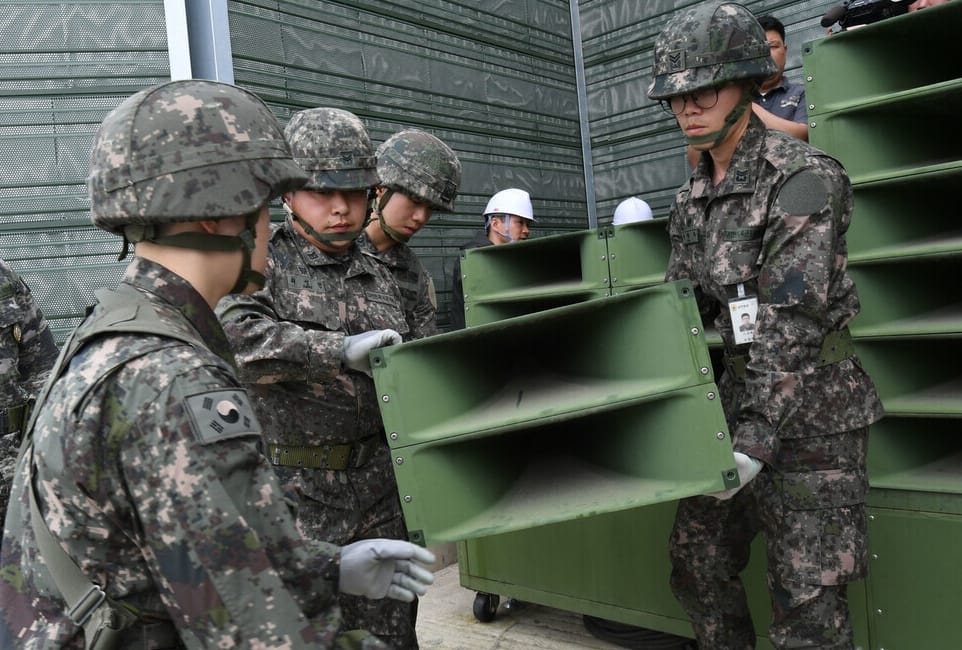Energy Reserves, Psychological Warfare, and Tax Debates: Inside Korea's Latest Developments
Massive Oil & Gas Reserves Discovered in East Sea, South Korea Considers Resuming Loudspeaker Broadcasts, Democratic Party Debates Reforming Real Estate Tax

Massive Oil & Gas Reserves Discovered in East Sea
In a potentially game-changing announcement, the South Korean government has revealed a high likelihood of 14 billion barrels of oil and gas reserves off the coast of Pohang in the East Sea. The discovery, based on in-depth physical exploration analysis conducted by U.S. firm Actgeo, could significantly alter the nation's energy landscape. If estimates prove accurate, the reserves could provide 29 years of natural gas and 4 years of oil for the entire country. Exploration drilling is set to commence by the end of 2024, with initial results expected by mid-2025.
The feasibility of extracting these reserves will depend on several key factors, including the depth and precise location of the deposits. Advances in drilling and extraction technology could make previously uneconomical reserves viable, but the costs and technical challenges involved remain significant hurdles. Moreover, the environmental risks associated with offshore drilling must be carefully assessed and mitigated to prevent ecological disasters and maintain public support for the project.
As a signatory to the Paris Agreement, South Korea has committed to reducing its greenhouse gas emissions to net-zero by 2050. Developing and utilizing the newly discovered fossil fuel reserves could make achieving this target considerably more challenging.
The geopolitical implications of this discovery could be far-reaching, potentially shifting regional energy dynamics and alliances. As South Korea's domestic energy production capacity increases, its reliance on imports from traditional suppliers may diminish, altering the balance of power in East Asia. The discovery could also lead to territorial disputes with neighboring countries, as the precise boundaries of exclusive economic zones in the East Sea remain contested. Furthermore, South Korea's newfound energy wealth could make it a target for foreign interference or aggression, as hostile actors seek to gain control over the reserves.
If successfully developed, the oil and gas reserves could have a profound impact on South Korea's energy mix. Natural gas, which currently accounts for about 25% of the nation's electricity generation, could see its share increase significantly, reducing reliance on coal and nuclear power. However, the discovery of oil could also slow the transition to renewable energy sources and electric vehicles, as the temptation to exploit domestic fossil fuel resources proves difficult to resist.
The potential extraction and burning of these reserves also raise questions about South Korea's ability to meet its carbon neutrality goals. As a signatory to the Paris Agreement, South Korea has committed to reducing its greenhouse gas emissions to net-zero by 2050. Developing and utilizing the newly discovered fossil fuel reserves could make achieving this target considerably more challenging. The government will need to carefully weigh the benefits of energy security against its climate commitments, while also navigating potential international pressure to prioritize clean energy over fossil fuels.
The economic impact of the discovery could be substantial, but realizing its potential will require massive capital investments in infrastructure and technology. Developing the reserves could create thousands of jobs and stimulate growth in related industries, from engineering and construction to shipping and logistics. Domestic energy production could also improve South Korea's trade balance and reduce its vulnerability to global energy price fluctuations. If managed wisely, the windfall revenues from oil and gas production could be invested in strategic national priorities, such as education, research and development, and social programs.
South Korea Considers Resuming Loudspeaker Broadcasts
In response to North Korea's recent provocations, including the launch of "feces balloons" and GPS jamming attacks, the South Korean government is considering resuming anti-North propaganda broadcasts along the border. The loudspeaker broadcasts, which were suspended since the 2018 inter-Korean agreements, are seen as a powerful asymmetric tactic to psychologically pressure the North Korean regime and its military. The move marks a significant escalation in tensions between the two Koreas and a departure from the détente of recent years.